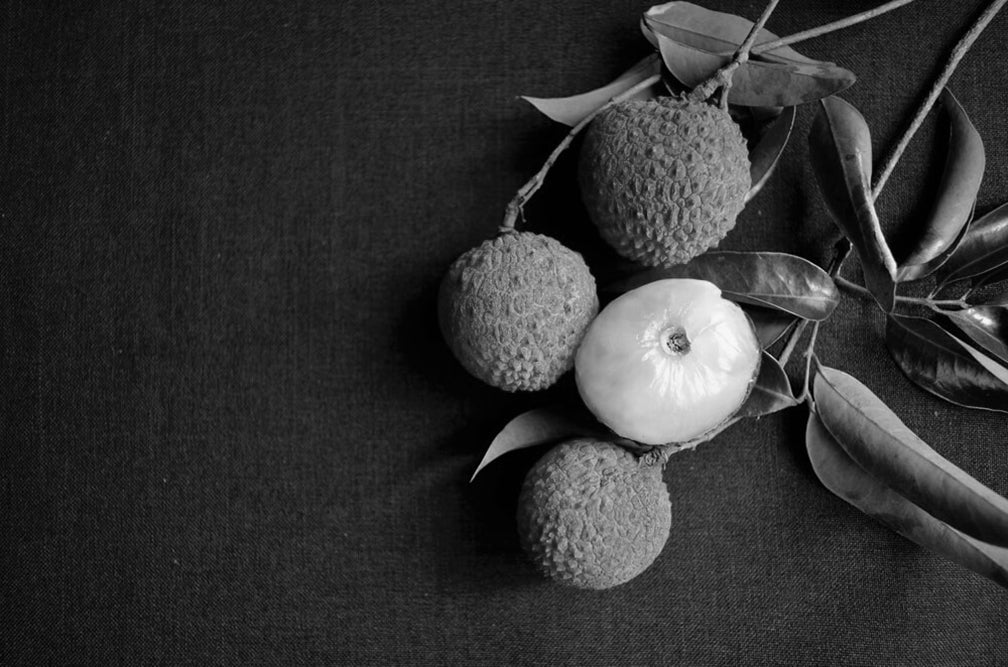
ingredient focus: plum

the bottom line
a relative newbie on the beauty scene, the plum is already a favorite in the beauty world for its benefits for both skin and hair. it boasts a remarkably high concentration of vitamin E and protective oleic acid, hydrates without clogging pores, and is believed to have higher antioxidant activity than that of olive and argan oils. read on to discover more about this gentle and elegant beauty.
first layer: the history
Believed to be one of the first fruits domesticated by humans, the origin of the plum has been cited in Iran, Syria, or China (depending upon your source). It's even been found in archaeological sites with olives, grapes, and figs. Cultivation of plums in the Mediterranean is thought to have followed the conquest of Alexander the Great in the 4th century BC. Plums eventually travelled to southwest France in the 13th century, where some of the oldest varieties are to be found. Plum extract has been used in traditional Chinese, Japanese, and Korean medicine for over 2000 years.
The two commonly known plum species include the European plum Prunus domestica and the Japanese plum Prunus salicina. Turkey, Italy, France, and China are currently some of the largest producers of the European plum. More recently, the unrelated Australian Kakadu plum (Terminalia ferdinandiana), has gained prominence for its very high concentration of vitamin C.
second layer: the science
Prunus is a genus of trees and shrubs which includes plums, cherries, peaches, apricots, and almonds. Prunus domestica is a flowering tree which produces the delicious fruit we know as the plum. The plum possesses a single, large seed which is extracted from the fruit and dried at the time of harvest. The seed is crushed to increase the surface area, and then cold-pressed which permits the natural oils to be expelled without the use of chemicals or heat which could deprive the oil of its precious vitamins and fatty acids.
Plum seed oil is rich and has a mild almond-like scent. Its main constituents include oleic acids (omega-9 fatty acids) at 60-80%, linoleic acids (omega-6 fatty acids) at 15-25%, palmitic acid (5-10%), stearic acid (1-4%), palmitoleic acid (1-2%), and vitamin E. The oil also contains phytosterols, which assist the skin in replenishing its lipid barrier.
Oleic acids, also known as omega-9 fatty acids, support the skin’s barrier function and contribute to the skin’s moisture levels. They also have antioxidant properties, help to reduce the signs of aging, and can relieve dry skin, redness, and irritation. Linoleic acids, or omega-6 fatty acids, can serve as emulsifiers and thickeners in formulations, in addition to increasing moisture levels in the skin and hair. They also show antioxidant, anti-inflammatory, and anti-irritant properties.
Palmitic acid has also been used as an emulsifier and thickener in formulations in addition to use as an emollient and surfactant. As an occlusive, it helps to reduce transepidermal water loss (TEWL). Stearic acid helps to lift dirt, sweat, and excess sebum from the hair and skin, while helping to emulsify water and oil. Palmitoleic acid, or omega-7 fatty acid, helps to rejuvenate the skin, hair, and lips. It also shows antioxidant properties, assists in reducing the appearance of aging, and supports the production of collagen. Finally, vitamin E is a potent antioxidant which helps to minimize inflammation, slow skin changes related to aging, and promote the healing of injured skin.
third layer: use
Plum seed oil is readily absorbed into the skin, and offers a host of benefits:
hydration: the high level of fatty acids, specifically oleic and linoleic, support the skin’s barrier function and improve hydration.
anti-oxidants: the very high concentration of vitamin E tocopherols provides anti-oxidant activity, which in turn fights free radicals. This in turn helps with the prevention of premature skin aging, pigmentation, and fine lines and wrinkles. The anti-oxidative power of plum seed oil is believed to be higher than that of olive oil and argan oil.
anti-inflammatory: the anti-inflammatory benefits of plum seed oil derive from its anti-oxidative properties. Plum seed oil is ideal for sensitive, stressed, and mature skin.
non-comedogenic: plum seed oil has been shown to be non-comedogenic, and therefore is useful in preparations for acne-prone skin.
anti-aging: you already know how much we dislike the term “anti-aging”, so let’s call this benefit “pro-aging”, by which we mean that all of the above benefits help to reduce some of the less joyful changes in life, including age spots, fine lines, and skin laxity.
sustainability: another plus – the seeds of the plum are typically discarded, but the oil sourced from the fruit means less waste and more beauty.
fourth layer: how we do it
Plum seed oil can be found in a host of natural beauty products, including moisturizers, lotions, serums, hand creams, hair conditioners, and lip balms. We’ve incorporated lovely plum oil into our lotus & lychee facial crème. Light and gently fragrant, it's absorbed easily into thirsty skin. With extracts of lotus flower, lychee fruit, elderberry, gotu kola, and plum, it’s a sweet treat for dry skin.
All this and more at www.anokhaskincare.com .
xx
anokha
references:
- wikipedia.org
- edenbotanicals.com
- byrdie.com
- https://thedermreview.com/plant-oils-skin-care/
- Savic I, Gajic SI, Gajic D. Physico-chemical properties and oxidative stability of fixed oil from plum seeds (Prunus domestica Linn.) Biomolecules 2020; 10(2): 294-305.
- Veličković DT, Ristić MS, Karabegovic IT, et al. Plum (Prunus domestica) and Walnut (Juglans regia): Volatiles and Fatty Oils. Adv Tech 2016; 5(1): 10-16
- Dweck, A. Handbook of Natural Ingredients, 4th ed. (2017). Dweck Books.
- Glavac NK, Janes D. Modern Cosmetics: Ingredients of Natural Origin, volume 1. (2018). Velenje: Sirimo dobro besedo.
faq's:
what are some plum oil benefits?
plum oil helps to hydrate the skin, has high levels of antioxidants, is anti-inflammatory, non-comedogenic, and sustainable.
can I use plum oil for face benefits?
yes, plum oil can be applied directly to the face to hydrate and soften skin.



leave us a comment
This site is protected by hCaptcha and the hCaptcha Privacy Policy and Terms of Service apply.